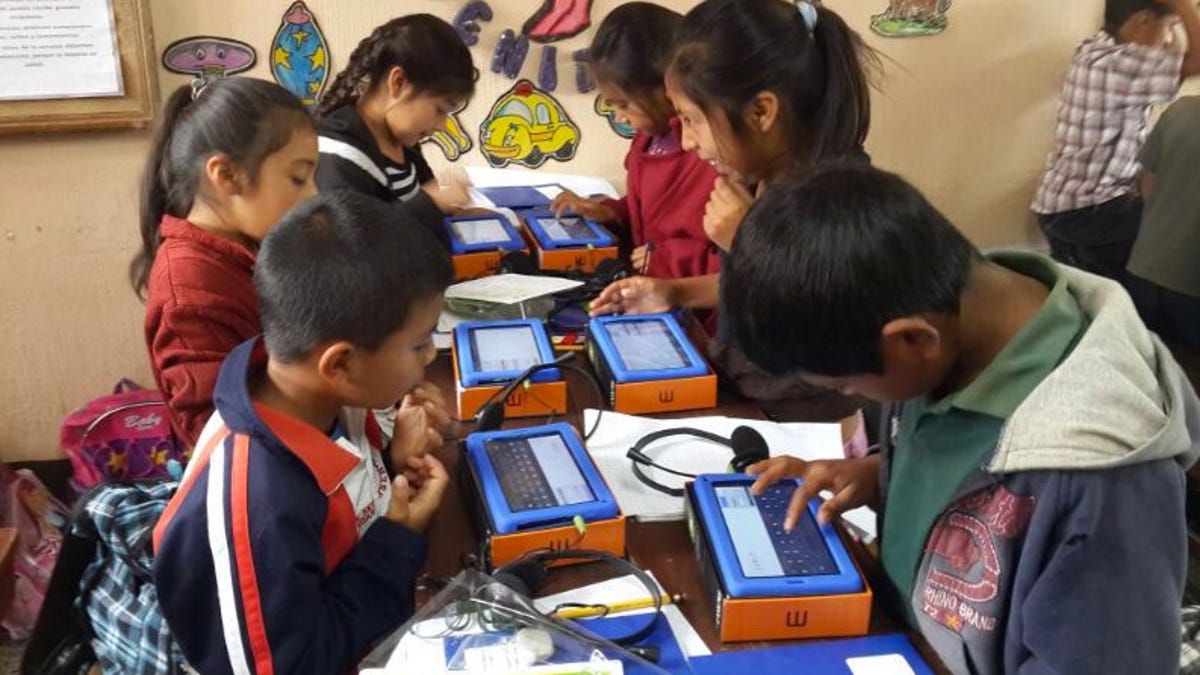Google commits $50 million to close the education gap
The company's philanthropic arm wants to back nonprofits using tech to bring educational resources to kids around the world in need.

Google.org wants to help nonprofits close the education gap.
There are 130 million students around the world who haven't learned basic math or reading, even after being in school for several years, according to UNESCO.
Google's philanthropic arm, Google.org, wants to whittle down that number. Over the next two years, it's giving $50 million in grants to nonprofits focused on improving education in developing countries using tech-based learning tools, the company said Tuesday. There are nine grantees so far, and Google.org intends to give grants to nonprofits in 20 countries by the end of the year.
"Technology can bypass the geographic and financial boundaries that block educational resources from reaching students, while also making those resources more engaging, interactive and effective," Brigitte Hoyer-Gosselink, the education lead for Google.org, said in a blog post.
These grants are aimed at three main areas: getting to students in combat zones, providing quality learning materials and aiding in teacher development.
Tackling the education gap, or the disparity between the performance of certain groups of students, is just one of Google.org's priorities. It's invested in nonprofits supporting a variety of causes, including racial justice, refugees and migrants, and diseases like Zika and Ebola. It gives about $100 million in grants every year. In the past five years, it's given $110 million, just aimed at closing the education gap. In February, Google.org announced $11.5 million in grants for racial justice organizations.
In addition to donating grant money, Google's employees volunteer their time. For example, engineers and product folks will spend four weeks with Learning Equality, a nonprofit organization that creates open-source software delivering things like books, quizzes and video tutorials to people without reliable internet access. Google employees will work on issues like video-compression technology, user experience and content integration.
Learning Equality's $5 million grant will go toward developing a platform called Kolibri, which gives kids in areas with limited internet connectivity access to learning resources.
"We're thrilled that Google.org and our fellow grantees are so aligned in this shared effort to close the learning gaps in global education by enabling universal access to tools, content, and pedagogy that support the success of both students and teachers," Jamie Alexandre, Learning Equality's co-founder and executive director, said in a statement.
Other grant recipients include Khan Academy, Million Sparks Foundation, Pratham Books' StoryWeaver, Pratham Education Foundation and War Child Holland.
Google.org has also given a grant to the Clooney Foundation for Justice, which is actor George and human rights lawyer Amal Clooney's organization for the education of Syrian refugee children in Lebanon.
Other tech companies have taken up philanthropic causes over the years. Salesforce has partnered with and supported public schools in the San Francisco Bay Area. Facebook's Internet.org includes several initiatives to bring connectivity to everyone, like a solar-powered drone named Aquila delivering Wi-Fi, or Free Basics, which provides basic websites relating to jobs, news and education for folks without connectivity.
CNET Magazine: Check out a sample of the stories in CNET's newsstand edition.
Life, disrupted: In Europe, millions of refugees are still searching for a safe place to settle. Tech should be part of the solution. But is it?

